Many Chinese women are prioritizing themselves, refusing to have children according to the wishes of the government and their families.
Outside a shopping mall in Quanxiao County, Anhui Province, He Yanjing, a mother of two, said she had received numerous calls from local authorities encouraging her to have a third child, but she had refused. The kindergarten her son attends has halved its classes because of a lack of students, He said.
Feng Chenchen, He's friend and mother of a three-year-old girl, said relatives were pressuring her to have another son.
“Having one child is my duty,” Feng said. Having a second child is too expensive. She told her relatives, “You can have another if you give me 300,000 yuan” ($41,000).
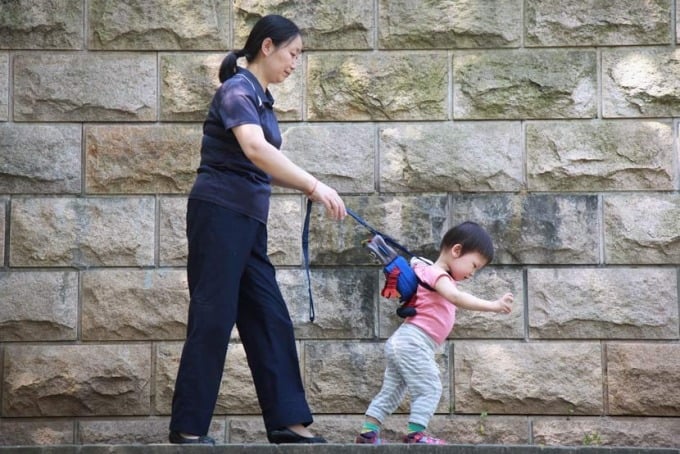
Mother and daughter in Nanjing city, Jiangsu province, May 28, 2017. Photo: VCG
Young Chinese, tired of low economic growth and high unemployment, are looking to pursue a different lifestyle from their parents. Many women see the idea of getting married and having children as outdated.
For Molly Chen, 28, caring for elderly relatives and her exhibition design job in Shenzhen have left her no time to get married and have children. In her spare time, Chen prefers to read books and watch pet videos.
Chen followed the story of Su Min, a retiree who traveled alone around China to free herself from a tiring marriage. Chen said Su Min’s story and the videos she posted online made her deeply impressed that many men mainly marry nannies to take care of their husbands, children, and elderly parents.
Chen complained that she didn't even have time to take care of a pet. "I don't have time to take care of anyone other than my parents and I have to work," Chen said.
In 2015, when Beijing ended its 35-year-old one-child policy, officials predicted a population boom. But the reality has been different. Many newly built maternity wards have closed within a few years. Sales of baby products such as formula and diapers have steadily declined. Companies that make baby products are now targeting the elderly.
New kindergartens are struggling to fill their classes, and many have closed. In 2022, the number of kindergartens in China fell by 2%, the first time in 15 years.
Demographers and researchers predict that the number of births in China will fall below 9 million by 2023. The United Nations predicts that India will have 23 million births in 2023, compared to 3.7 million in the US. India surpassed China to become the world's most populous country in 2023.
The one-child policy has led to a bleak demographic picture in China. There are fewer young people, including millions fewer women of childbearing age each year. They are also reluctant to marry and have children, accelerating the rate of population decline.
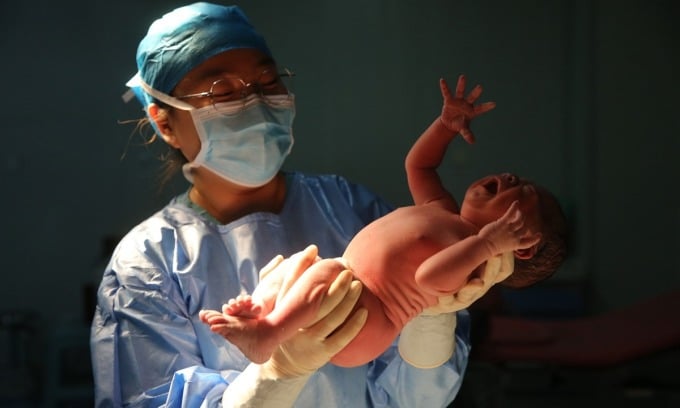
A nurse delivers a newborn baby at a hospital in Zhengzhou, Henan province, China on January 1, 2022. Photo: VCG
China recorded 6.8 million marriages in 2022, nearly half the 13 million in 2013. China's total fertility rate in 2022 was 1.09, approaching the one-child-per-woman mark. In 2020, it was 1.30, well below the 2.1 needed to keep the population stable.
China is rolling out a series of measures to boost its birth rate, including holding matchmaking events and launching a program to encourage military families to have more children.
"Soldiers win battles. When it comes to having a second or third child and implementing national birth policies, we are at the forefront," said Zeng Jian, an obstetrician at a military hospital in Tianjin in 2022.
In August 2023, residents of Xi'an city said they received a text message from the city government on Qixi Valentine's Day with the message "Wishing you a sweet love and marriage at an appropriate age. Pass on the Chinese bloodline."
The message sparked a backlash on social media. "My mother-in-law didn't even urge me to have a second child," one person wrote. "I guess we're going back to the days of arranged marriages," another commented.
Local governments have also offered incentives, such as cash bonuses for families who have a second or third child. A county in Zhejiang province offered a cash bonus of $137 to couples who married before the age of 25. In 2021, the city of Luanzhou in Hebei province required unmarried people to sign up for a government-sponsored dating initiative that uses big data to find potential partners in the city.
The change in birth policy has shifted women from having to hide their desire to have more children to being pressured to have more. Ten years ago, Zhang had to hide her second child from the authorities. She quit her job because she feared being pressured to have an abortion. After giving birth in 2014, Zhang stayed with relatives for a year. When she returned, local officials fined her and her husband $10,000, forced her to have an IUD implanted, and required her to have checkups every three months.
Months later, Beijing announced the end of the one-child policy. But for a while, local authorities still required Zhang to get an IUD checkup. Now, she received text messages encouraging her to have children.
"I wish they would stop bothering us," she said, "leave us civilians alone."
Chinese authorities are tightening the licensing of clinics that perform birth control. In 1991, at the height of the one-child policy, China recorded 6 million tubal ligations and 2 million vasectomies. In 2020, there were 190,000 tubal ligations and 2,600 vasectomies. Some people complain that getting a vasectomy appointment is like winning the lottery.
The number of abortions fell from 14 million in 1991 to less than 9 million in 2020, and since then, China has stopped releasing data on the number of vasectomies, tubal ligations and abortions.
Sophy Ouyang, 40, decided not to get married and have children since middle school. Ouyang studied computer science, is one of the few women in the field to pursue advanced studies and work as a software engineer in Canada.
Ouyang said that throughout her 20s, her family pressured her to get married. Her mother often said that if she had known earlier that Ouyang did not want to have children, she would have prevented her from pursuing graduate school. Ouyang cut off contact with her family more than 10 years ago. She blocked her parents, aunts, and uncles on social media apps.
"If I let my attitude go, they would take advantage of me." Ouyang still feels lucky that she decided not to get married and have children, she feels "I dodged a bullet."
Dai, who married at 26, said she had to put up with her husband’s patriarchal behavior, especially during the pandemic when they argued about household chores. She was determined not to have children despite pressure from both families.
Dai has filed for divorce. "If I don't get a divorce, I'll probably have to have a baby," Dai said.
Hong Hanh (According to WSJ, AFP )
Source link




![[Photo] Prime Minister Pham Minh Chinh chairs meeting to discuss tax solutions for Vietnam's import and export goods](https://vstatic.vietnam.vn/vietnam/resource/IMAGE/2025/4/10/19b9ed81ca2940b79fb8a0b9ccef539a)

![[Photo] Unique folk games at Chuong Village Festival](https://vstatic.vietnam.vn/vietnam/resource/IMAGE/2025/4/10/cff805a06fdd443b9474c017f98075a4)
![[Photo] Phuc Tho mulberry season – Sweet fruit from green agriculture](https://vstatic.vietnam.vn/vietnam/resource/IMAGE/2025/4/10/1710a51d63c84a5a92de1b9b4caaf3e5)


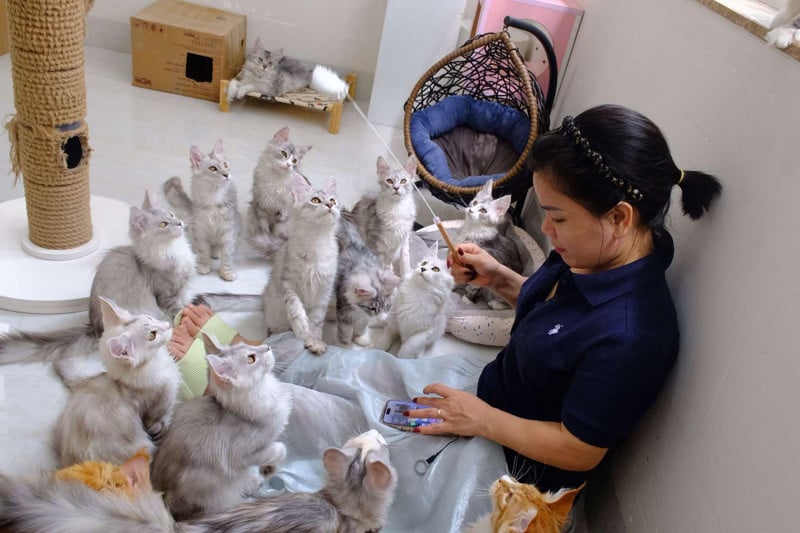

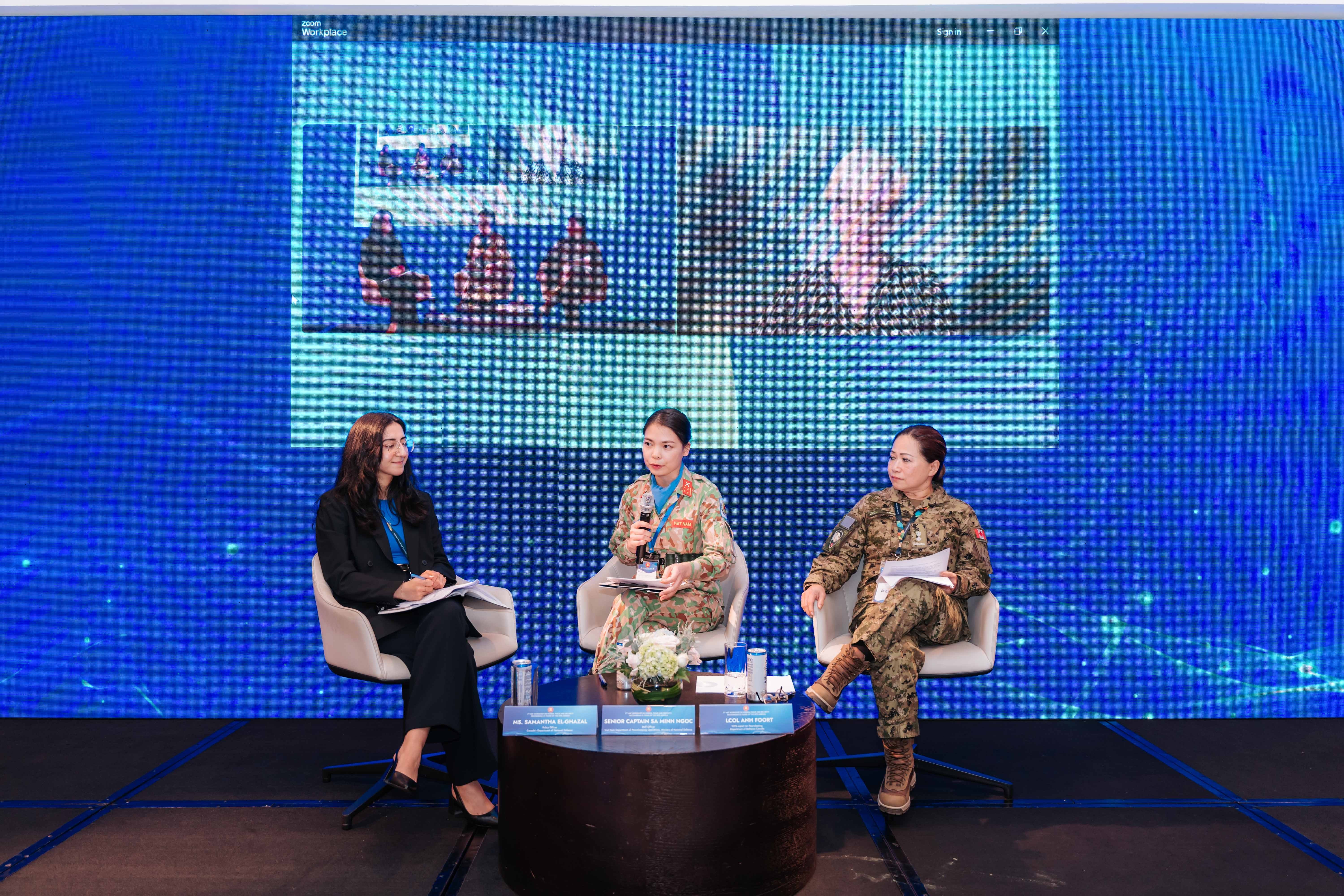




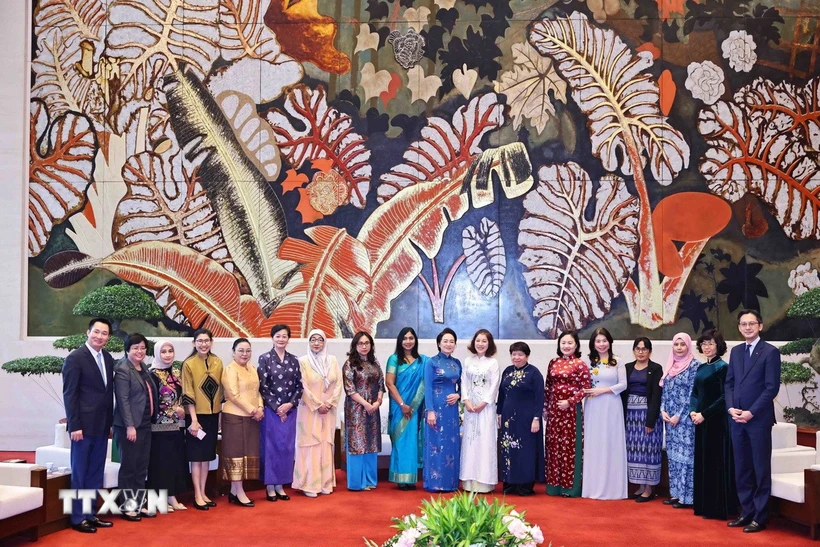



















































































Comment (0)